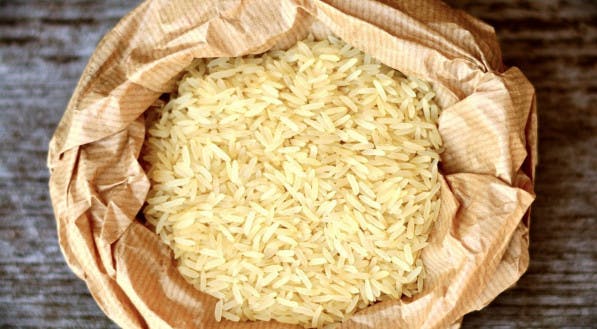Sympathy to Win the Lottery with Rice
We explore the fascinating sympathy to win the lottery with rice, delving into its cultural roots and psychological impact, on a journey between faith, tradition, and the eternal human quest for luck and prosperity.
The Lottery House
tags:
faith
law of attraction

Introduction
In a world where luck is often invoked to change destinies, sympathies stand out as rituals loaded with hope and faith. One of the most curious and popular among Brazilians is the sympathy to win the lottery using a simple everyday ingredient: rice. This ritual, besides reflecting popular culture and belief in luck, opens an interesting debate about the intersection between faith, tradition, and the pursuit of financial prosperity.
Origins and Meanings

The sympathy with rice to attract luck and financial prosperity has roots in ancient traditions that associate this grain with abundance and fertility. Rice, a staple food for more than half of the world's population, symbolizes wealth and prosperity in many cultures. In Brazil, a country known for the richness of its cultural expressions and the diversity of its beliefs, it is not surprising that rice also plays a leading role in rituals for attracting luck and wealth.
Step-by-Step Sympathy

The sympathy to win the lottery with rice is simple and requires few materials, making it accessible to anyone wishing to try their luck. Although there are variations, the essence of the ritual involves writing the desired numbers on paper, placing it under a container with rice, and then saying prayers or affirming positive intentions focused on the desire to win the lottery.
Materials Needed:
1 glass or porcelain container;
Enough rice to fill the container;
1 piece of white paper;
1 blue or green ink pen.
Procedure:
Preparation: Write on the white paper the numbers you want to play in the lottery, using the blue or green ink pen. The choice of ink color has its symbolism, where blue is associated with tranquility and green with luck.
Ritual Setup: Place the paper with the numbers at the bottom of the chosen container. Then, fill the container with rice, completely covering the paper.
Activation of Sympathy: With the container prepared, place your hands on it and say a prayer or affirm your intention to win the lottery. Faith and positivity are key elements at this moment.
Maintenance: Leave the container in a place in your home where it won't be disturbed or seen by visitors. It is believed that tranquility and discretion enhance the effectiveness of the sympathy.
Between Faith and Science: An Analysis

While the sympathy to win the lottery with rice reflects a cultural practice rich in faith and hope, science offers a perspective based on probability and chance. The odds of winning the lottery are objectively low, and no ritual can alter the mathematical probabilities of the games. However, psychology suggests that rituals like these can have a positive impact on people's emotional well-being, offering comfort, emotional control, and a sense of hope in the face of adversity.
Cultural and Social Reflections
The practice of sympathies like the rice one to win the lottery reveals much about the cultural and social context in which we live. It illustrates not only the search for magical solutions to financial issues but also the deep human connection to faith and tradition. In a society increasingly governed by rationality and technology, these practices highlight the persistence of mysticism and spirituality in everyday life.
Deep Cultural Roots
Sympathies, especially those involving elements as common as rice, delve deep into cultural traditions that celebrate abundance and prosperity. These practices reflect not only a universal desire for prosperity but also the incorporation of everyday elements into rituals that transcend the material, connecting practitioners to a rich and diverse cultural heritage.
Variations of the Sympathy and Their Meaning

The various variations of this sympathy demonstrate the adaptability and personalization of spiritual practices. The inclusion of coins or the choice of specific dates to perform the ritual are examples of how people adjust sympathies to align more closely with their personal beliefs and energies they perceive as more auspicious.
The Psychological Impact of Sympathies

The psychological impact of these practices goes beyond the pursuit of financial gains. They offer a moment of introspection, an exercise of faith, and the manifestation of a deep desire for change and improvement in life. This emotional and psychological aspect is crucial to understanding the persistence and popularity of sympathies in contemporary culture.
Contrast with Other Lucky Practices
When comparing the rice sympathy with practices from other cultures, it becomes evident that the search for luck and prosperity is a universal constant. However, each culture adapts this quest to its own belief systems and practices, creating rituals around the world.
Reflection on the Role of Popular Beliefs
Popular beliefs occupy a significant space in the social and cultural fabric, serving as bridges between the past and the present, the material and the spiritual. They are a reflection of human diversity and our ability to find meaning and hope in a world full of uncertainties.
The View of Science and Spirituality
The interaction between science and spirituality in discussions about sympathies and luck rituals reveals the complexity of the human experience. While science seeks to explain the world through reason and evidence, spirituality and spiritual practices offer comfort, community, and a sense of belonging that transcends the material.
Testimonials and Personal Experiences
Success stories, even anecdotal ones, fuel faith in sympathies and reinforce belief in their effectiveness. These testimonials are a vital component of oral tradition, keeping practices alive and encouraging new generations to explore them.
Final Reflections: Between Faith and Reality
The sympathy to win the lottery with rice, with its deep cultural roots and psychological impact, is a reminder of the multifaceted nature of human faith and hope. It represents the intersection between the desire for material prosperity and the pursuit of spiritual connection, showing that, regardless of the results, the act of practicing sympathies is in itself an expression of optimism and belief in the possibility of change and improvement.